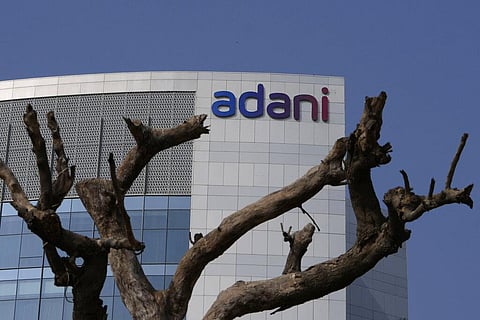Defending Adani, critiquing Hindenburg
Adani Group stocks have continued to drop since the release of the Hindenburg Report on January 24. The sell-out nixed over $40 billion worth of investors’ wealth. Just about everyone seems to be delirious that many people, including Gautam Adani, have lost money. If you are one of the investors and you wanted your family to benefit from the growth of your investments, should this crash make you feel good? Unlikely. But there it is. As of Thursday, Gautam Adani Enterprises has scrapped its ₹20,000 crore follow-on public offering because “it is not morally correct”, given the low public subscription. What has money to do with morality?
What explains the funereal frenzy in media? It is as if they had predicted the apocalypse, and now that it is here they must celebrate. Since half the media in India is owned by Adani’s rival(s), one must suspect envy as a motive. The Mumbai backstreet rumour is that Adani’s competitors (at least three come to mind) must have commissioned the Hindenburg Report.
The Report accuses the company of stock manipulation, money laundering, and accounts misdemeanours. Which Indian conglomerate is innocent of these charges? No rich man/woman ever smelt good in his/her armpit. Indeed, is the New York-based forensic firm, Hindenburg, itself completely transparent?
Hindenburg is a small firm (employing, according to Google, between eight and 11 people). Its proprietor is Nathan Anderson. The company “specializes in forensic financial research. Our experience in the investment management industry spans over a decade, with a historical focus on equity, credit, and derivatives analysis. While we use fundamental analysis to aid our investment decision-making, we believe the most impactful research results from uncovering hard-to-find information from atypical sources”. The operative word here is ‘atypical’. Because that is what prevents transparency. The prized virtue that the Report accuses Adani Group of lacking.
One of the most illuminating reports on Nathan Anderson and his company appeared in Intelligencer on January 20, 2022. The writer is Andrew Rice. The title is ‘Last Sane Man On Wall Street’. It describes Anderson as an ‘activist’ short seller. It defines short sellers as making “money by taking positions in the stocks of shaky or shady companies, which pay off if the price goes down—an outcome the shorts hasten with public attacks, publishing investigations on their web platforms, and blasting away at their targets (and sometimes at one another) on Twitter”. Italics mine.
Short-selling is betting against the market. You borrow 100 shares and sell them for ₹5000. The price suddenly declines to ₹25 a share, at which stage you buy 100 shares to replace the shares you borrowed. Your profit is ₹2500. Anderson’s Report, raising 88 points of query against Adani Group (which replied with a 413-page document), is only part of the deal. No one seems to be talking about how much Anderson might have made, even if it is technically legal—but perhaps not ‘moral’.
The Intelligencer says Anderson has “been able to make a very good living”, blasting companies and short-selling the shares he is likely to have acquired before finding fault with the conduct of the chosen companies. While no one is defending fraudulent corporate practices, short-selling by activist traders after investigating the companies they hope to benefit from is surely another version of insider trading?
Hindenburg Report says it has taken over two years of research and interviews with many people, including former senior executives from Adani Group, to access the fraud allegedly committed by the company.
But Hindenburg does not name its sources and so is open to allegations of manipulation and profiteering. The article says of Anderson: “He declines to describe his stock-trading strategies in detail, except to say he collaborates with a group of roughly ten “investors”—presumably wealthy individuals or financial institutions, although he won’t name names. For each investigation, he may take on one backer. The investor gets an advance look at the Report that allows that party to take a short position, and Hindenburg takes a cut of the profits on the trade.”
It is a valid question to ask who might be the backers of the Hindenburg Report except for Gautam Adani’s competitors? Sitting in New York, how on Earth would Anderson be privy to the innermost working of a Byzantine company headquartered in Ahmedabad? The answer partly lies in what Anderson tells Rice in late November: “We just downloaded the entire Mauritius corporate registry.”
What’s the bet that this registry belonged to Adani Group and was the starting point of Anderson’s investigations? Rice adds, “He was still figuring out how he would be able to profit from the investigation’s findings, (italics mine) whenever it ultimately came to completion.”
That completion was reached on January 24, with the release of the Hindenburg Report. Well, corporates the world over are in it for the money, not love. From Wall Street to Dalal Street, millions make a meal or more of it by bending the rules and squaring corners. Of the $40 billion Adani Group lost, surely a few must make their way to Nathan Anderson’s bank. In effect, it is still the same ‘tainted’ money, but it has made a mercenary in New York richer.
If shorting is the name of the new game, all corporates in India are at the mercy of short activists, who themselves are not quite the saints that the media makes them out to be. And there will be other reports on other Indian companies in the near future. It is the apocalypse, except that it is going to be a long one. The year ahead smells of blood, and that is because the stock exchange is turning into a slaughterhouse.
C P Surendran
Poet, novelist, and screenplay writer. His latest novel is One Love and the Many Lives of Osip B

